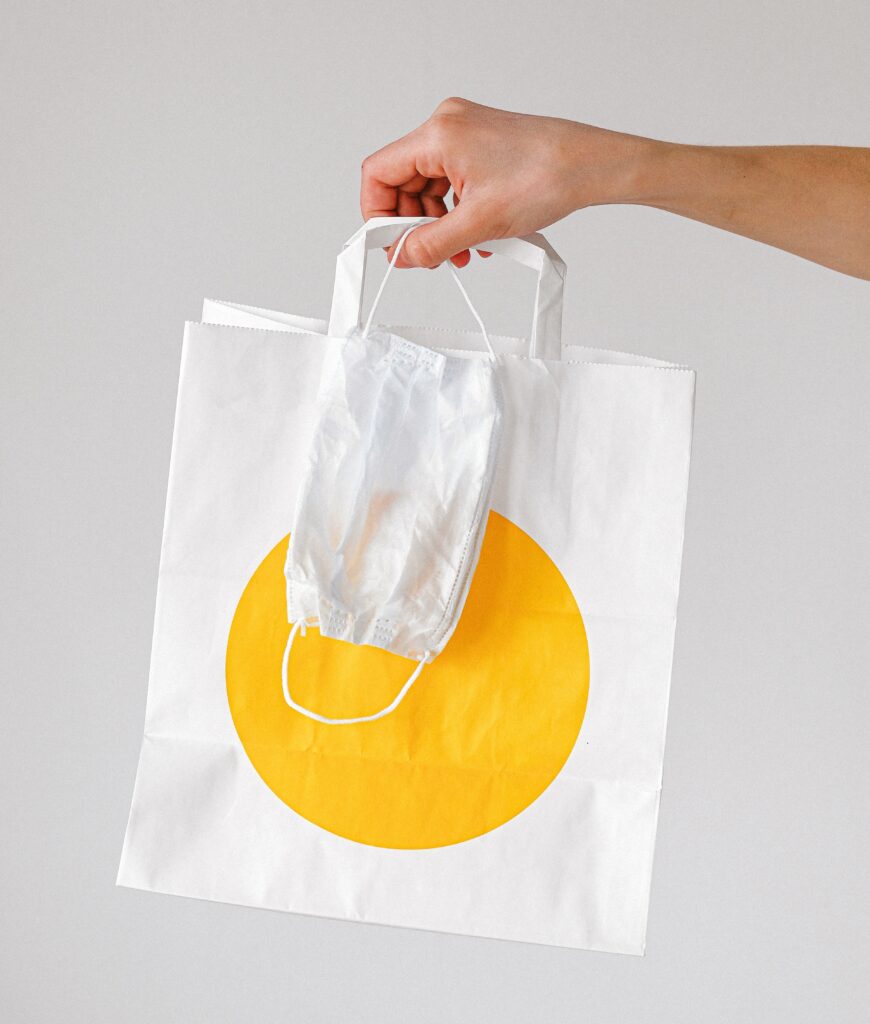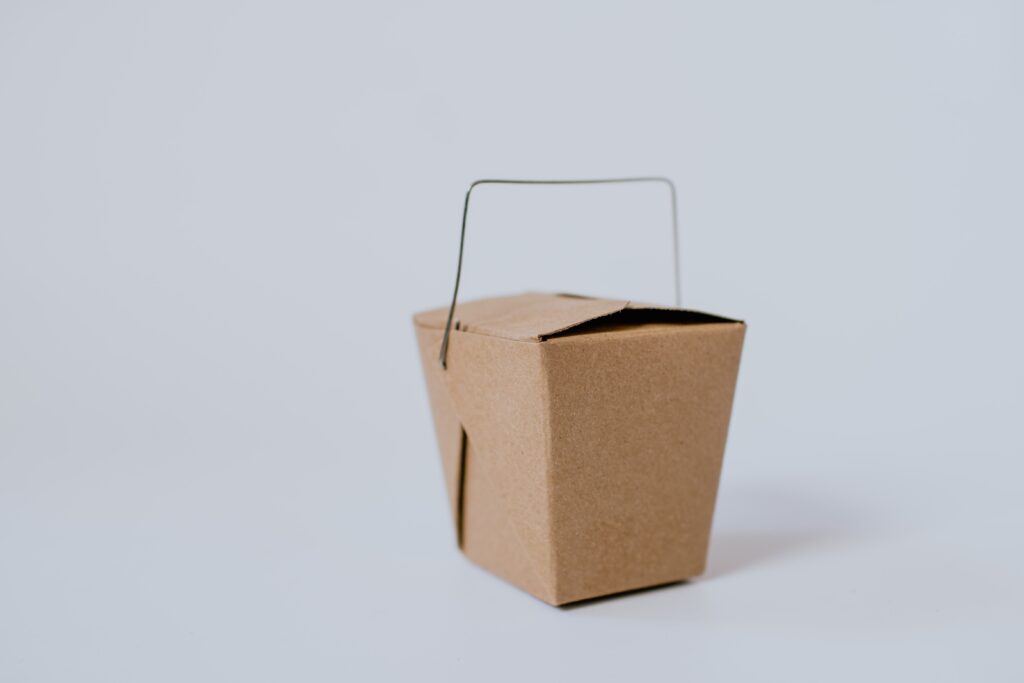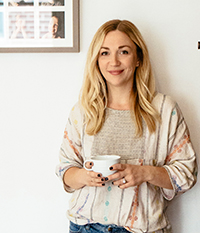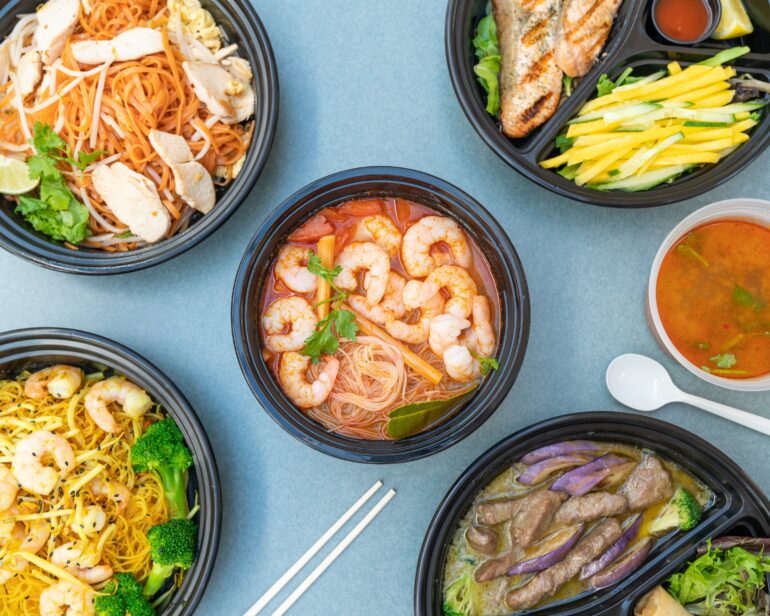With the many questions we have swimming around in our heads during this pandemic, one question keeps lingering: how safe is the food we are grabbing to-go or having delivered? It’s more important than ever to support local restaurants and businesses, but with information still coming in about how the virus spreads, we wanted to get to the bottom of this. After all, if we are self-isolating at home, we don’t want to inadvertently order the virus straight to our house.
To get the facts straight, we spoke with an expert in the field of infectious diseases, Colleen Nash MD, MPH, an Assistant Professor of Pediatric Infectious Diseases at Rush University Children’s Hospital and Medical Director of the Pediatrics Antimicrobial Stewardship Program. Here is what she has to say:

The risk
“Regardless of who you are, if you are receiving anything from the outside, food delivery, packages, etc, you should always decontaminate surfaces that can be reasonably cleaned, and wash your hands after handling anything,” Nash recommends. Takeout or food delivery still requires the preparing and handling of food that could be contaminated. However, this is not as high of a risk as dining in a restaurant, where you are exposed to different surfaces and individuals. “Serve your food and wash your hands immediately before eating,” she adds.
Many restaurants and businesses are doing a great job of safely handling food and packages right now, so if you take extra precautions, there shouldn’t be anything to worry about. For ease of mind, Nash recommends calling the restaurant and confirming that they are appropriately taking precautions to maintain cleanliness and confirm that their employees are in good health prior to ordering.
What about boxes and delivery bags?
“Throw away bags, containers or anything else that may have come with the food delivery that is unnecessary,” Nash says. Use your own utensils and if you have to use plastic ones, wash before use. “If you can request, ask for no additional items other than the food containers if you don’t need it, even extra sauce packets or other items that may accompany your food,” she adds.

Is it safer to get your own groceries or order delivery?
It all comes down to practicing safe hygiene, social distancing and washing your hands – a lot. “For some, going out to the grocery store or elsewhere to gather food could be a very significant risk (depending on other risk factors like age, co-morbidities, or even being the primary caretaker of someone who is elderly or has co-morbidities),” Nash says. “Takeout or food delivery may actually be safer than those in person activities.”
Small steps = great impact
“All of these small steps could have a great impact,” Nash says. “While this is an imperfect process, it may add that little push for both families and restaurants to minimize the risk as much as possible.”
If you are really worried, remember there are other ways to support restaurants right now.
Funds have been set up to support artists, venue, restaurant and bar employees, as well as hospitality workers (again, just a few of many!):
National
MusiCares Emergency Financial Assistance
MusiCares can fund medical costs, addiction recovery treatment, psychotherapy and basic living expenses such as rent and utilities for musicians and music industry professionals.
Musicians’ Foundation Grant
If you’ve been a working musician in the United States for the last five years, the Musicians’ Foundation Grant offers grants for emergency situations like medical care or personal or family crisis.
USBG National Charity Foundation
A bartender emergency assistance program.
Bay Area
Save Our Faves
Buy gift cards good at Bay Area restaurants.
TipJarMarin.org
Leave a “Tip” for your favorite restaurants in Marin to help them through the COVID-19 shelter-in-place period.
PlayMarin
Play Marin, will distribute 300 – 600 free packaged dinners every weekend in Marin City through June 21st. They will purchase the dinners from Marin restaurants on Friday, Saturday, and Sunday nights.
Bay Area Emergency Fund: Artists/Event Production
This is a need-based grant; those who need help with rent, medical care, utility bills and childcare will be prioritized.
COVID-19 Performing Arts Worker Relief Fund
Theatre Bay Area organized a fund for theater workers facing a sudden loss of income due to coronavirus.
The COVID Fund of MCF
This quick-response fund is dedicated to directing financial support to nonprofit organizations serving those individuals and families most in need.
The Safety Net Fund
A nonprofit site helping Bay Area musicians.
Untitled, Art Emergency Fund
Artists who either graduated from a Bay Area institution or have been working in the region for at least two years can apply to the Untitled, Art Emergency Fund, which gives out $250 grants to freelance, hourly and wage-working artists. The mini grants cover basic expenses such as rent, childcare and healthcare costs, and applications are due March 31.
United Way Bay Area COVID19 Community Relief Fund
Contributions will support local Bay Area organizations and their short term and long-term response services including technology infrastructure, direct assistance funds and worker support.
Chicago
Emporium Arcade Bar Employee Relief Fund
Empty Bottle + Bite Café Staff Relief
Heisler Hospitality Employee Fund
Hideout Virtual Tavern
Lula Cafe Fund
Reno 911
Scofflaw Group Employee Fund
Sleeping Village Employee Fund
Stock Mfg and Leisure Activities
They have teamed up to sell t-shirts to support hourly hospitality workers at 32 Chicago restaurants.
Thalia Hall + Dusek’s Employee Relief Fund
Tonic Room Tip Jar
More from Better:
Here’s How You Can Support Local Businesses During the COVID-19 Shutdown
Coronavirus: What You Need To Know About COVID-19 — Here’s the Latest
6 New Books That Will Help You Escape From Reality Right Now
 Macaire Douglas lives in the Chicago suburbs with her husband and two sons. She proudly supports Save Abandoned Babies Foundation, a Chicago-based nonprofit organization that works tirelessly to prevent the illegal abandonment of newborns nationwide. Since its inception in 2000, more than 3,600 newborns have been safely surrendered and adopted into loving homes.
Macaire Douglas lives in the Chicago suburbs with her husband and two sons. She proudly supports Save Abandoned Babies Foundation, a Chicago-based nonprofit organization that works tirelessly to prevent the illegal abandonment of newborns nationwide. Since its inception in 2000, more than 3,600 newborns have been safely surrendered and adopted into loving homes.

